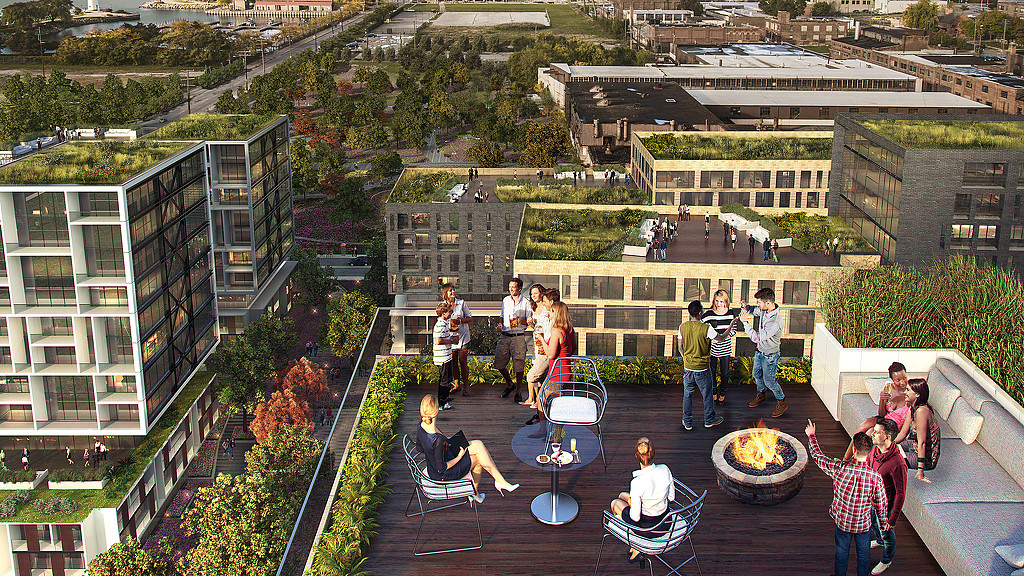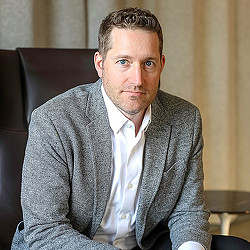Design Forecast Detroit: Shaping the Future of Cities
By John Waller
Editor’s note: This post is part of Gensler’s Design Forecast Local, a series of hyper local conversations with our clients about the topics that matter most in our cities.
Gensler’s Detroit office hosted "Design Forecast Detroit: Shaping the Future of Cities," a provocative discussion on urban innovations and their impact on the future of a mobile, connected, and inclusive Detroit. The discussion convened a panel of forward-thinking executives, city leaders, strategists, designers, influencers, and visionaries, who shared global and local perspectives. Dylan Jones, who leads Gensler’s Mobility Lab, moderated the discussion, while Josh Sirefman, co-founder and head of Development, Sidewalk Labs, delivered the keynote address.
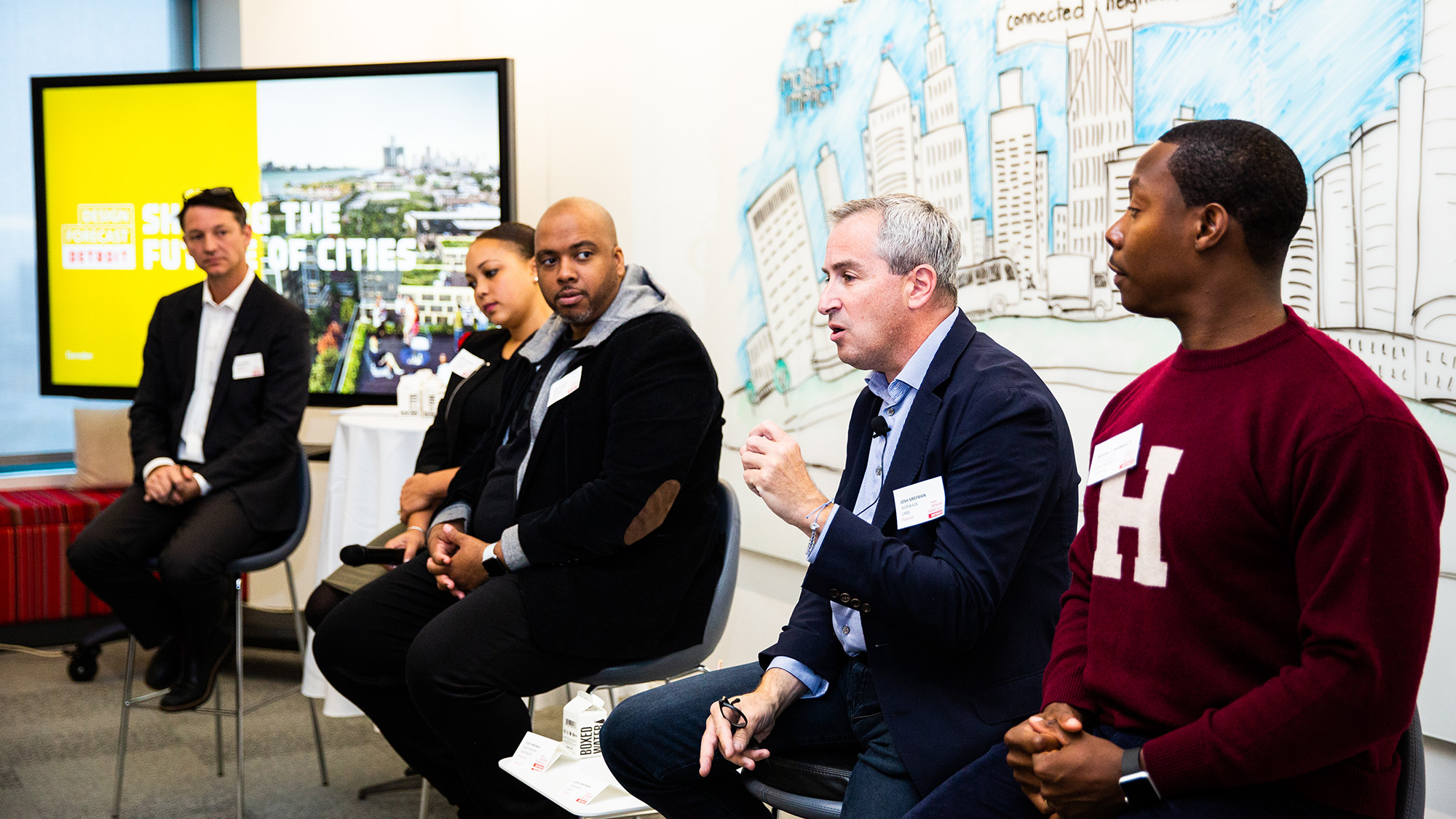
We need a new set of tools for city building.
Josh Sirefman described how Sidewalk Labs is aiming to create a “whole new set of tools for city building” in order to improve opportunities for community engagement. For example, Sidewalk Labs is developing a generative design tool that can generate millions of planning scenarios to help designers, urban planners, and city officials make more informed decisions. But Sirefman cautioned that technology shouldn’t be employed for its own sake, but instead, it should be used for people’s benefit. He also talked about the need to think holistically about development to address pressing issues, from housing affordability to social equity. City building is everyone’s responsibility, and both the public and private sectors must drive innovation — especially as the boundaries between these sectors are blurring.
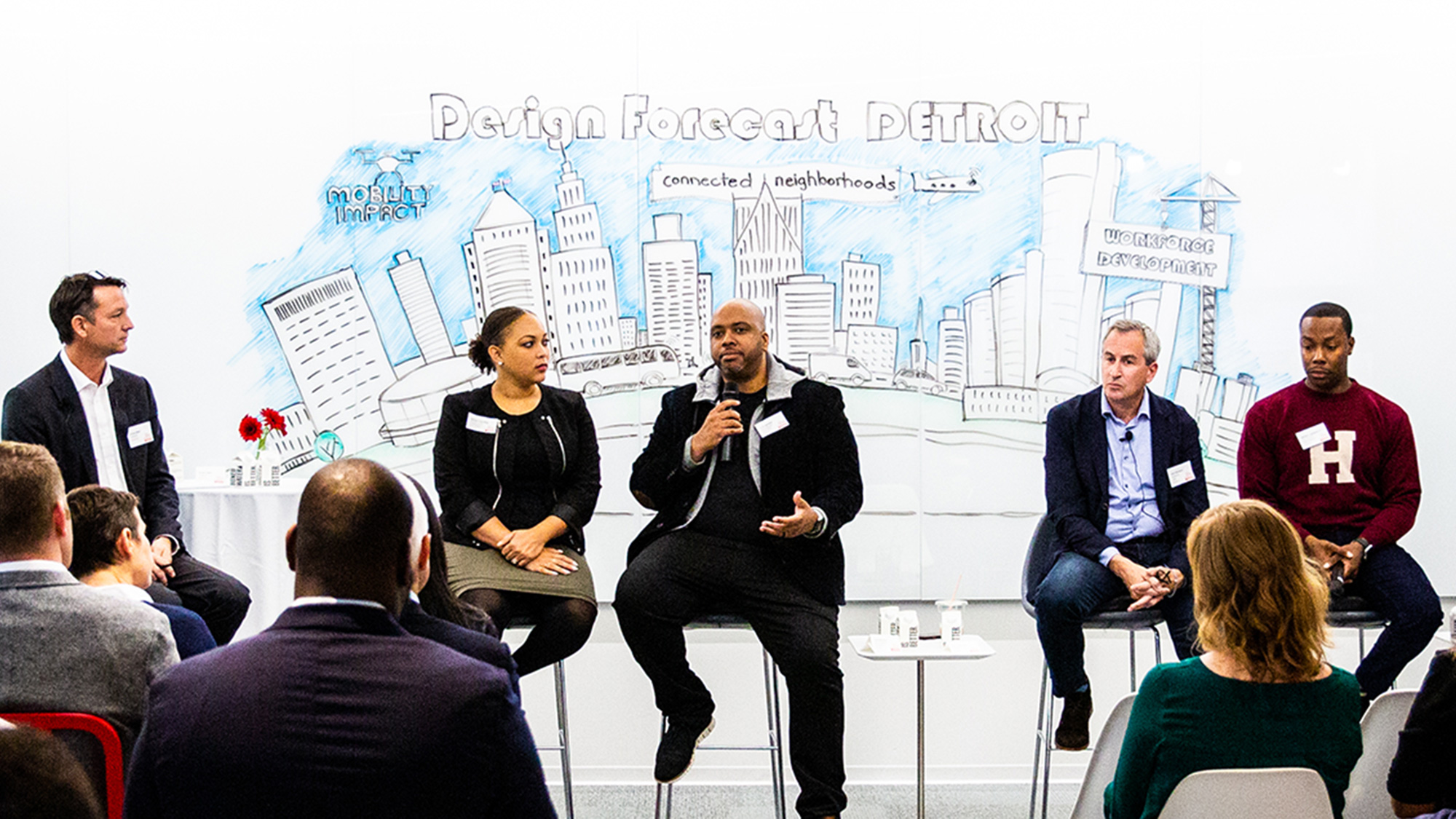
Bryan Barnhill, Detroit city manager, City Solutions Group, Ford Mobility, talked about how technological innovation is outpacing innovation of social policy and infrastructure. Cliff Brown, managing partner, Woodborn Partners, added that we need to meet infrastructure needs while also meeting the needs of city residents. Nicole Stallings, director of Employer Engagement, City of Detroit, Mayor’s Office of Workforce Development, said it’s imperative that residents can participate in economic and technological growth in a way that is equitable and inclusive.
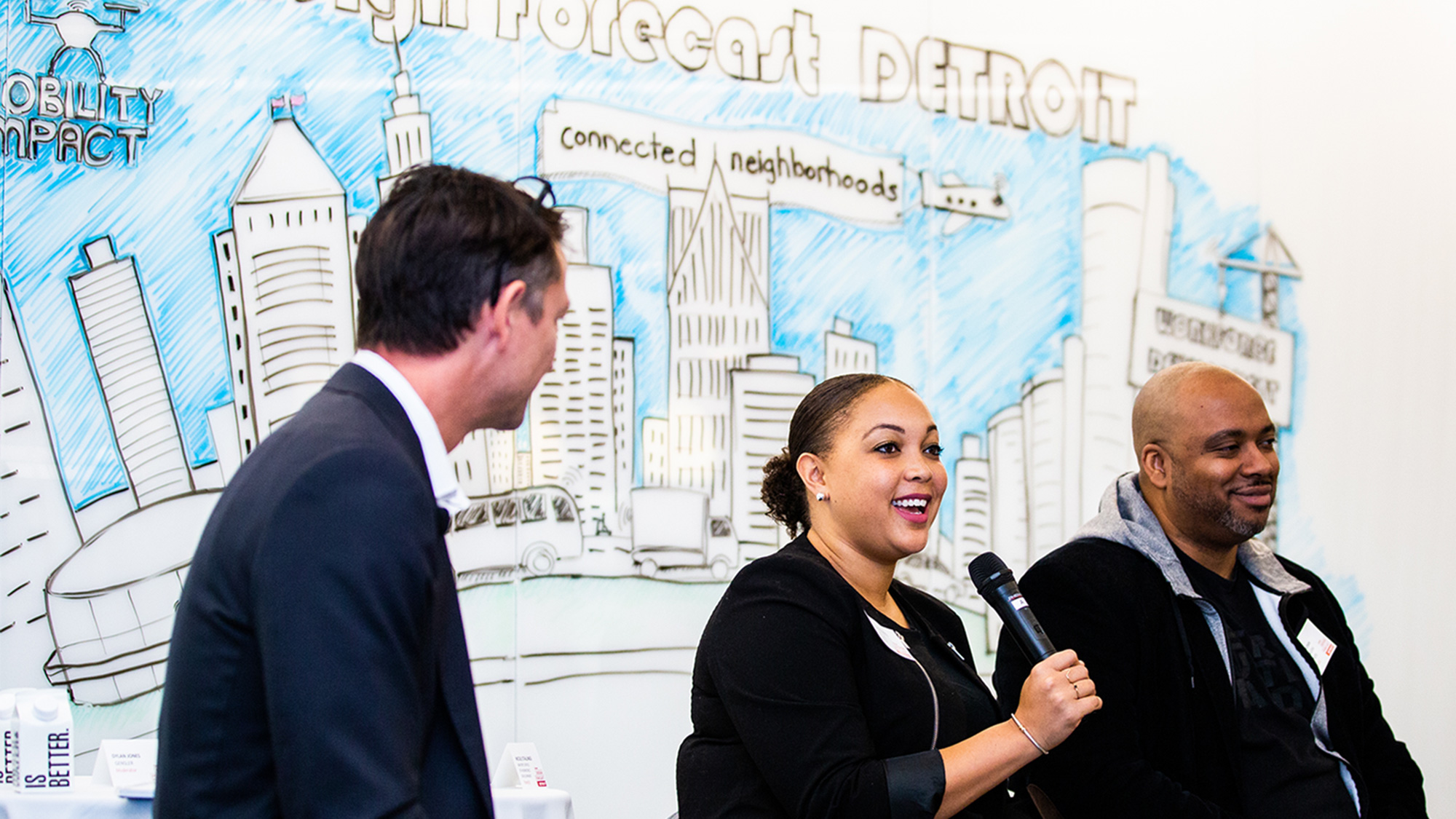
According to Gensler’s Dylan Jones, people are moving away from individual automobile ownership to ride sharing and new forms of mobility. Ford Mobility’s Bryan Barnhill talked about how the auto industry is being disrupted globally. Detroit has a rich culture of innovation; however, the city has its own mobility challenges, largely in part because of the influence of automobiles on the city’s development. Ford is piloting mobility solutions, looking at equity in transportation and accessibility in movement.
We need to explore new models for inclusive growth.
City of Detroit’s Nicole Stallings said that the City needs to grow in ways that create opportunities for everyone. Sidewalk Labs’ Josh Sirefman said that Detroit has enormous opportunity to define what inclusive growth is, and the City needs to discover new models of development. According to Woodborn Partners’ Cliff Brown, access to opportunity for jobs and education can help drive more inclusive development.
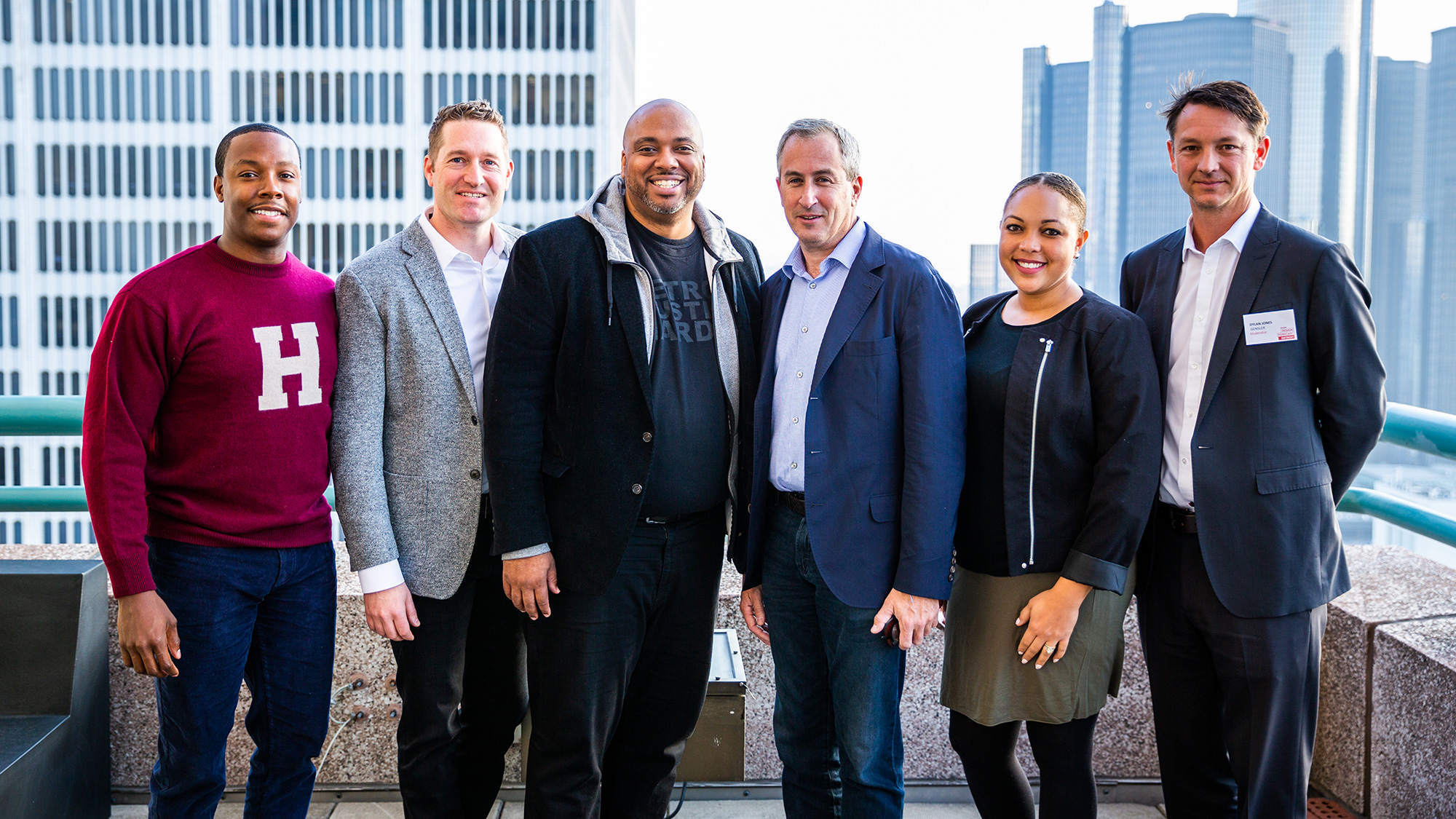
After this robust conversation, we learned that reshaping future of our city will require us to embrace technological disruption in order to drive innovation and foster social mobility. We hope this dialogue will continue to promote partnerships, connections, and relationships. It’s all of our responsibility to move the City of Detroit forward.
